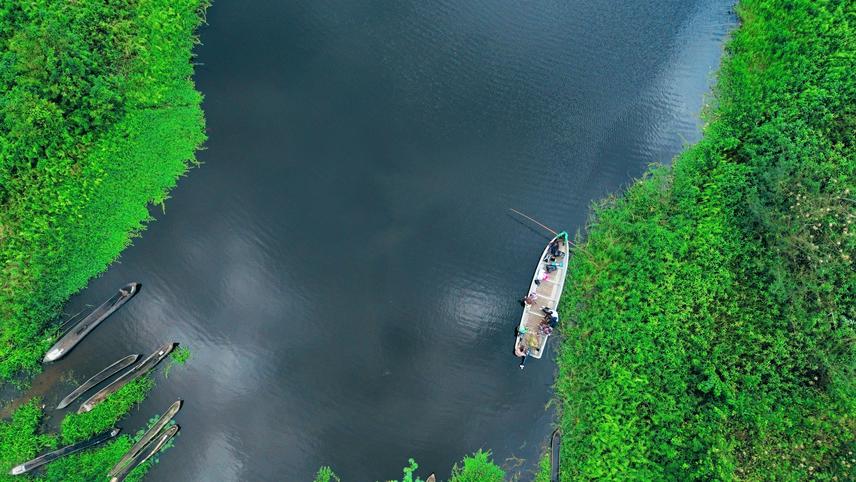Stanislas Mahussi Gandaho
Agonve Island, located in the Zagnanado municipality in the center of Benin, is a vital biodiversity hotspot facing severe environmental challenges. Home to over 3,200 residents, the island's economy relies heavily on fishing, farming and livestock breeding. However, unsustainable practices in these sectors have led to significant wetland degradation and habitat destruction, posing a direct threat to both the ecosystem and the livelihoods of the local community. One of the most endangered species on the island is the Red-bellied Monkey, a primate endemic to the region. Over the past three decades, its population has declined due to habitat loss, poaching and agricultural expansion. Unregulated hunting and excessive resource extraction further exacerbate biodiversity loss, underscoring the urgent need for conservation efforts that integrate ecological preservation with sustainable community development.

Agonve. © Stanislas Mahussi Gandaho.
This initiative seeks to address these pressing concerns by raising awareness about the ecological importance of wetlands and the critical status of the Red-bellied Monkey. The project promotes sustainable resource management and fosters environmental stewardship through education, community engagement, and alternative livelihood strategies. A key component of the project is raising awareness among local residents. This will be achieved through community workshops, educational campaigns, and radio broadcasts emphasizing the cultural and ecological significance of wetlands and the Red-bellied Monkey. By promoting sustainable practices, the initiative aims to reduce harmful activities that contribute to environmental degradation.
To enhance conservation efforts, the project will implement a monitoring system using camera traps to track the Red-bellied Monkey’s population and habitat use. The collected data will inform conservation strategies, helping to ensure the species' long-term survival. Youth engagement is another critical focus. By partnering with schools, the initiative will cultivate environmental stewardship through field trips, competitions, and conservation clubs. Educating younger generations about sustainability will help create a long-term commitment to protecting Agonve Island’s biodiversity.
In addition, the project explores ecotourism as a sustainable alternative livelihood for the community. By involving residents in conservation efforts, ecotourism has the potential to generate economic benefits while preserving the island’s unique ecosystem. This approach aligns conservation with economic incentives, ensuring the protection of natural resources for future generations.